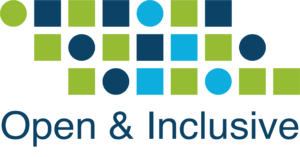 open & Inclusive Special Interest Group
open & Inclusive Special Interest Group
Tuesday 1st November (14:00 – 15:30 BST)
To all our speakers and attendees who always take time out to join us for the Open & Inclusive SIG, we say “thank you it has been an eventful year”. For the last time this year, we have our very own Dr. Irina Rets who will be discussing about her recent Research Project. All are welcome as usual!
Abstract
The C-19 pandemic has given momentum to the pedagogy of care approaches – approaches which demand flexibility and sensitivity, for instance, with deadlines and individual needs of learners, and which emphasise that access to learning should be seen as part of a societal issue or an institutional approach to teaching, rather than as a deficit situated within the learner.
While accessibility research has been mainly addressing the needs of disabled learners – in the aftermath of the pandemic – should accessibility research focus more in-depth on other groups of learners, such as, for example, international learners?
This interactive talk will present the linguistic accessibility framework developed in a doctoral thesis (Rets, 2021). We will discuss why there was a need for this framework, and what research methods were used to develop it. We will also talk about how to apply this framework to teaching, and what implications this will have for the learner, teacher, and the educational institution.
Author Bio:
Dr Irina Rets is a Doctoral Researcher in educational technology, based at the Institute of Educational Technology (IET), the Open University (OU), UK. She also holds a doctorate in applied linguistics from Volgograd State University (Russia). Irina’s research interests lie at the intersection of education, technology-enhanced learning, and applied linguistics.
As part of her PhD, she investigated the accessibility of online education to English learners. Irina has used a variety of methods to explore this topic, as well as the topics of other research projects she has provided research consultancy for: eye-tracking, online measures of learner behaviour; statistical modelling, advanced qualitative analysis of the data from over 40 interviews she has conducted to date; cluster analyses; analysis of longitudinal reflective learner diaries; analysis of surveys; participatory research.
Irina is a Fellow of Higher Education Academy (FHEA). Before her PhD at the OU, Irina taught a variety of academic university courses to undergraduate and graduate students in English-medium settings. She was involved in all stages of the teaching of these courses: from course design to course delivery and assessment.